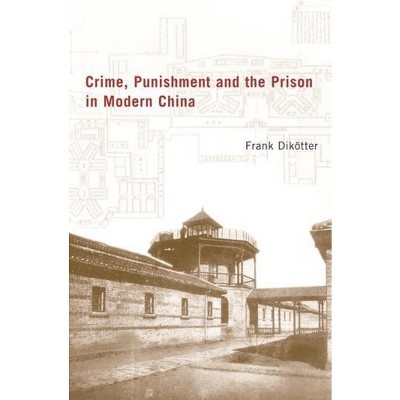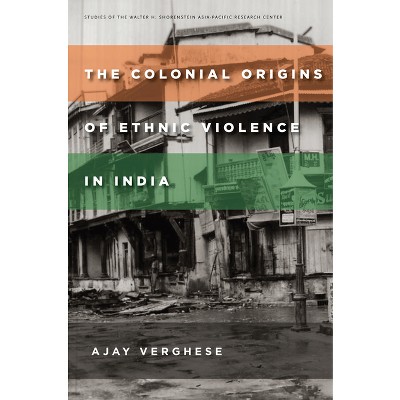Sponsored

The Colonial Prison in Bengal, 1860-1945 - (World Histories of Crime, Culture and Violence) by Animesh Bag (Hardcover)
Out of Stock
Sponsored
About this item
Highlights
- This book presents alternative histories of the colonial prison in Bengal, 1860-1945, focusing on the experiences of the colonised subject as produced in literary writings including fiction, dramas, and life writings.
- About the Author: Animesh Bag is Assistant Professor in the Department of English at K. K. Das College, Kolkata, India.
- 258 Pages
- History, Asia
- Series Name: World Histories of Crime, Culture and Violence
Description
Book Synopsis
This book presents alternative histories of the colonial prison in Bengal, 1860-1945, focusing on the experiences of the colonised subject as produced in literary writings including fiction, dramas, and life writings. The colonial prison, as defined by penal acts, jail codes, jail manuals, committee reports, administrative data, and statistics, was a modern punitive institution that evolved from the religio-local and the Company's capricious system into an effective humanitarian machine for 'the rule of law.' However, it was the site of torture, humiliation, and repression, which was subsequently challenged, defied, and resisted. The book establishes a comprehensive linkage between the macro historical and the micro historical perspective of the colonial prison exploring its changing image in Bengali society, its extended contribution to the formation of individual and collective identity, intricate tempo-spatial regulations within jails, and various techniques of corporeal and mental torture. The book also highlights resistance tactics of the prisoners, both ordinary and political, and finally it addresses the gendered dynamics and the gender-specific modalities of resistance and subversion.From the Back Cover
This book presents alternative histories of the colonial prison in Bengal, 1860-1945, focusing on the experiences of the colonised subject as produced in literary writings including fiction, dramas, and life writings. The colonial prison, as defined by penal acts, jail codes, jail manuals, committee reports, administrative data, and statistics, was a modern punitive institution that evolved from the religio-local and the Company's capricious system into an effective humanitarian machine for 'the rule of law.' However, it was the site of torture, humiliation, and repression, which was subsequently challenged, defied, and resisted. The book establishes a comprehensive linkage between the macro historical and the micro historical perspective of the colonial prison exploring its changing image in Bengali society, its extended contribution to the formation of individual and collective identity, intricate tempo-spatial regulations within jails, and various techniques of corporeal and mental torture. The book also highlights resistance tactics of the prisoners, both ordinary and political, and finally it addresses the gendered dynamics and the gender-specific modalities of resistance and subversion.
Animesh Bag is Assistant Professor in the Department of English at K. K. Das College, Kolkata, India. His scholarly works have been published in books and journals, both in English and Bengali. His primary research explores how literature represents, archives, and critiques the lived experiences of crime and punishment in modern legal and penal frameworks.
About the Author
Animesh Bag is Assistant Professor in the Department of English at K. K. Das College, Kolkata, India. His scholarly works have been published in books and journals, both in English and Bengali. His primary research explores how literature represents, archives, and critiques the lived experiences of crime and punishment in modern legal and penal frameworks.










